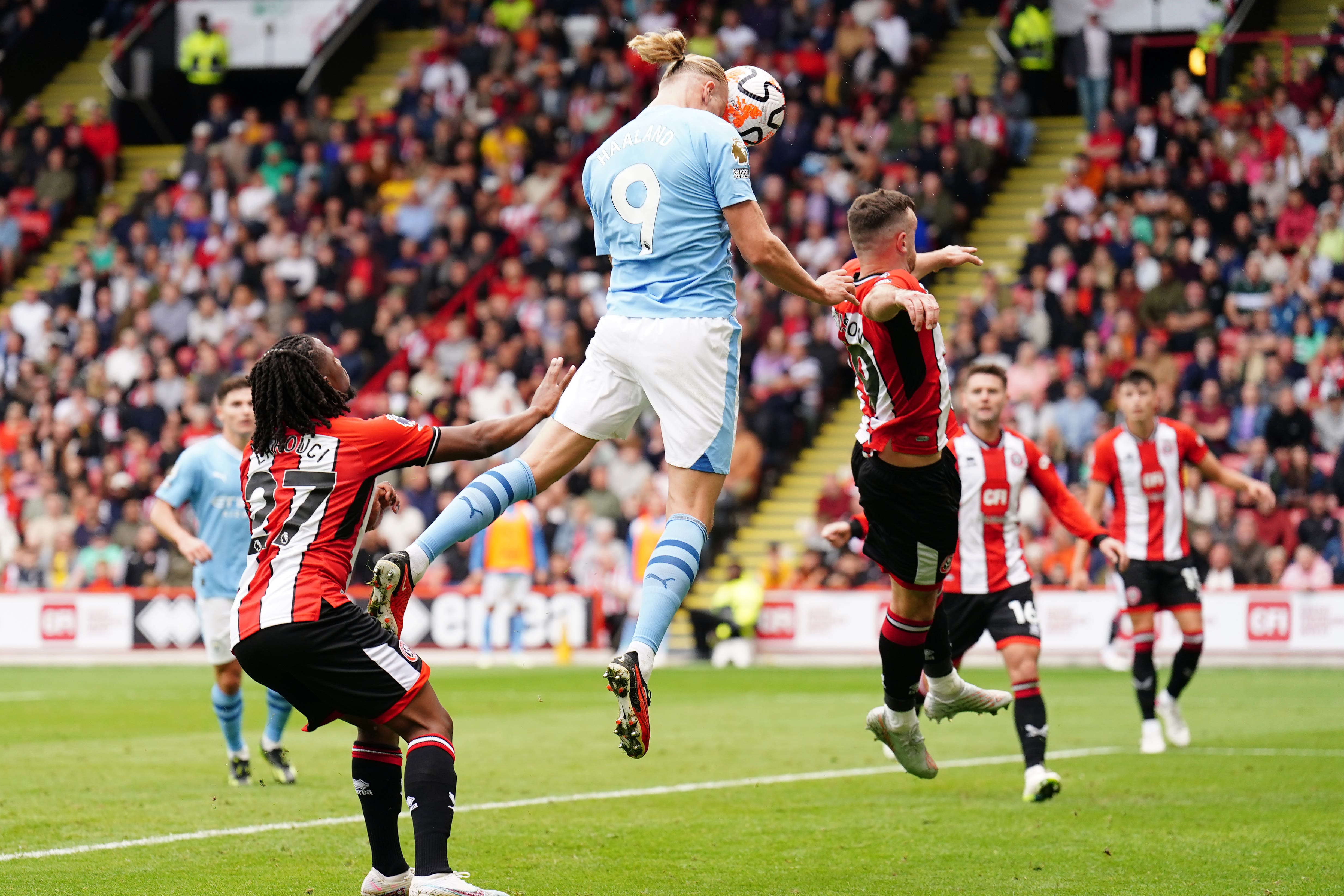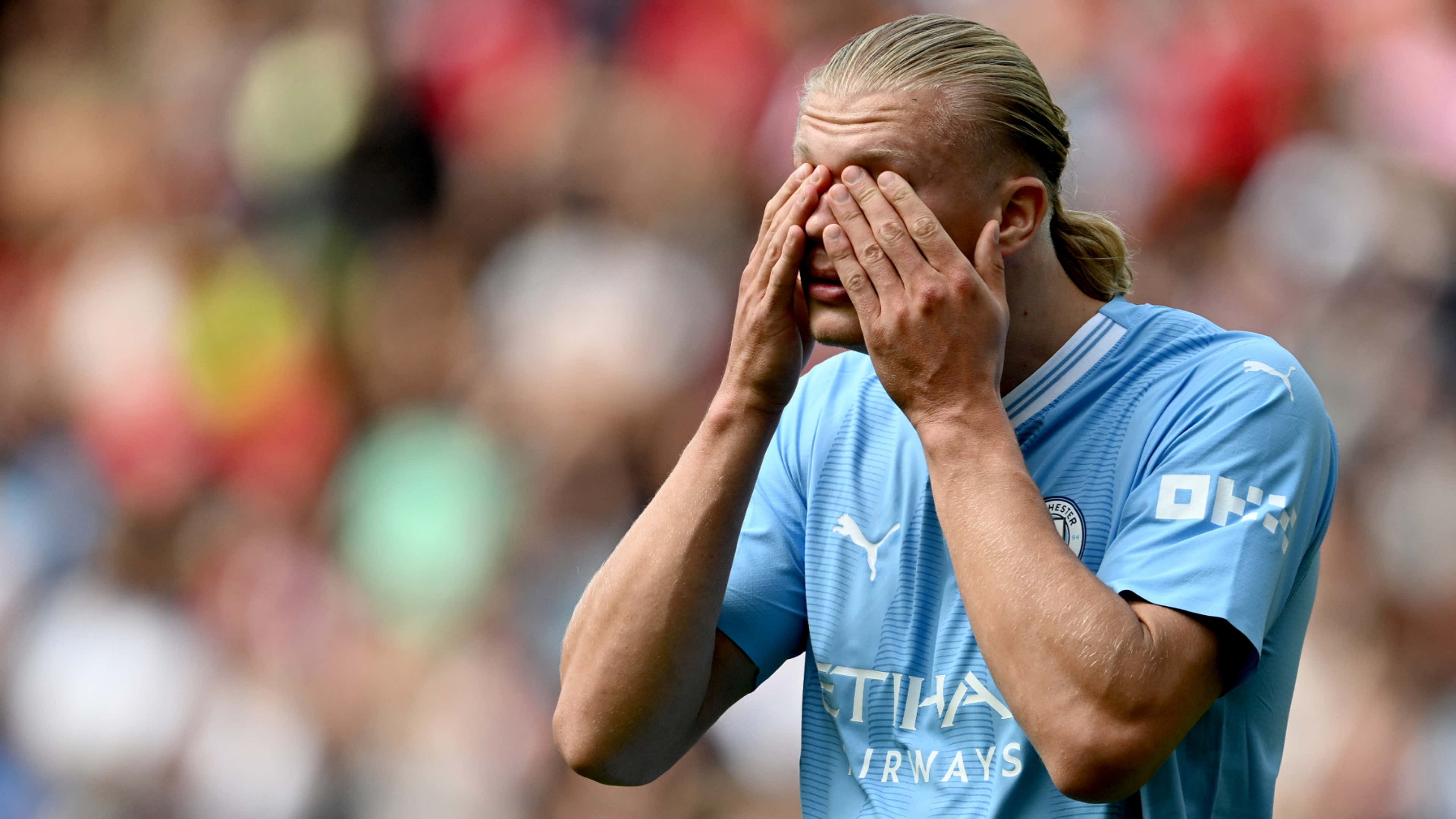After soaring at the back post to deliver a powerful header into Sheffield United’s net, Erling Haaland visibly breathed a sigh of relief. While the Manchester City striker is known for his exuberant celebrations, it took an unexpected pitch invader jumping on his back to remind him that he had just scored a goal.

In a delayed reaction, he resumed a couple of the hand gestures that had become his trademark last year when he netted an astonishing 52 goals in 53 games. However, his demeanor appeared more relieved than jubilant at opening the scoring, and there was a straightforward reason for that – he had previously missed a golden opportunity to give his team a 1-0 lead from the penalty spot.

It seemed almost inevitable that Haaland would add another goal when he sent the goalkeeper the wrong way, but he struck the ball at too acute an angle, resulting in it rebounding off the post.

At one point, it appeared to be another frustrating afternoon for the tall Norwegian, who had missed several chances against Newcastle United just a week earlier.
.jpg)
To scrutinize a striker who has now scored three goals in as many games may seem excessively critical, but Haaland is a unique case.

In his debut season in English football, he shattered the Premier League record for goals in a single campaign and was a crucial part of only the second team ever to achieve a treble. Such remarkable success has burdened him with sky-high expectations and set records that seem nearly impossible to match.

In this sense, Haaland’s challenge for the current season mirrors that of the entire club: how do they follow up near-perfection?
